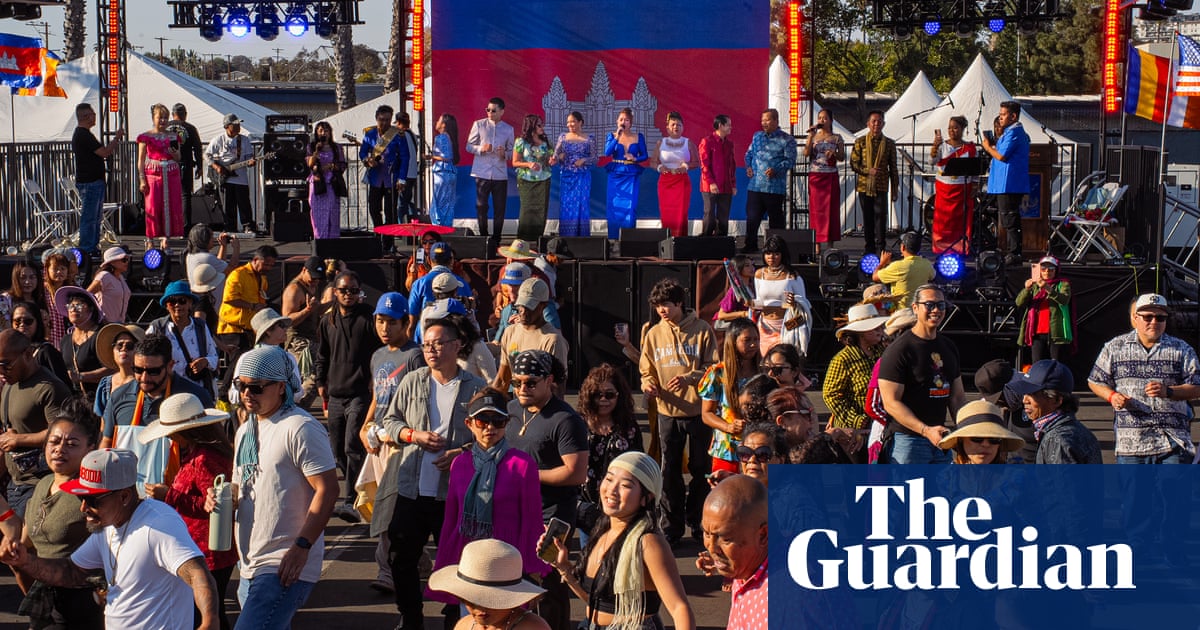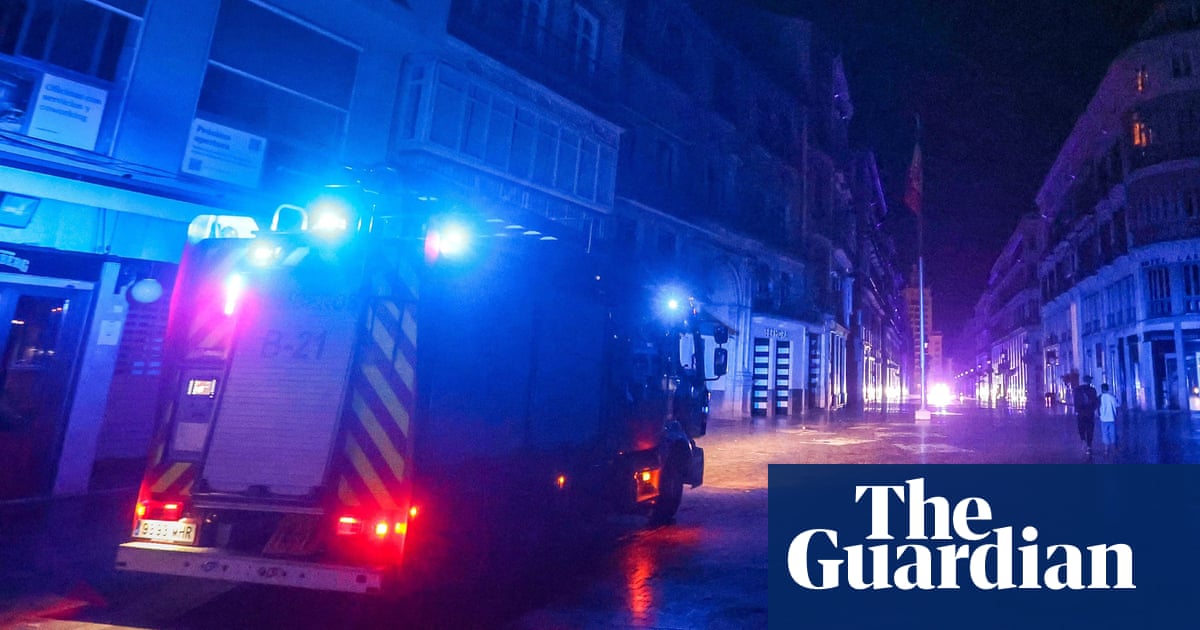Detainees at the Bluebonnet immigrant detention center in the small city of Anson, Texas, sent the outside world a message this week: SOS.
With a Reuters drone flying nearby, 31 men formed the letters in the dirt yard of the facility on Monday.
Ten days earlier, dozens of Venezuelan detainees at the center were given notices by immigration officials that alleged they were members of the Venezuelan gang Tren de Aragua and subject to deportation under a wartime law, according to documents shown to Reuters, recorded video calls and court proceedings.
The families of seven detainees interviewed by Reuters said they were not gang members and that they refused to sign the document.
Nevertheless, hours later on 18 April, they were loaded onto a bus bound for nearby Abilene Regional airport, according to the American Civil Liberties Union and family members, before the bus was turned around and sent back to the detention center.
That night, the supreme court temporarily blocked their deportations. The Department of Homeland Security declined to comment on the halted deportations.
It was a reprieve for the group of Venezuelans detained at Bluebonnet, who still face being potentially sent to Cecot, the notorious maximum security prison in El Salvador where the Trump administration has sent at least 137 Venezuelans under the 1798 Alien Enemies Act, if the supreme court lifts the block.
The Bluebonnet facility, located 200 miles (322km) west of Dallas, is privately run by the Management and Training Corporation under a contract with Immigration and Customs Enforcement. Named after the state flower of Texas, it has held an average of 846 detainees a day in fiscal year 2025, according to Ice detention data.
Denied access to the Bluebonnet facility by Ice, Reuters flew a small plane over the center last week as well as a drone nearby on 28 April to gather aerial images of the detainees being held there. Some of the detainees photographed by Reuters were wearing red jumpsuits designating them as high risk.
Millan was moved to Bluebonnet in mid-April from the Stewart detention center in Lumpkin, Georgia, where he had been held since he was arrested by immigration agents in the Atlanta suburbs on 12 March, according to a senior Department of Homeland Security official. Reuters could not find a criminal record for Millan, who had been working in construction. The DHS official said Millan was a “documented” member of Tren de Aragua, but provided no evidence.
The DHS official said Ice detained Escalona in January 2025, after he was arrested by local Texas police for evading arrest in a vehicle. He arrived at Bluebonnet after he was returned from the US migrant detention facility in Guantánamo Bay in February.
The DHS official said Escalona was a “self-admitted” Tren de Aragua member but did not provide evidence of the claim.
During a phone interview from Bluebonnet, Escalona said he had no ties to Tren de Aragua or any gang. He was a police officer in Venezuela, he said. When they detained him, US authorities took his phone and he suspects they saw photos of him making hand gestures that he said were common in Venezuela.
“They’re making false accusations about me,” he said. “I don’t belong to any gang.”
Escalona said that he has asked to return voluntarily to Venezuela but was denied.
“I fear for my life here,” he said. “I want to go to Venezuela.”
Hundreds of thousands of Venezuelans have come to the United States over the past few years, fleeing economic collapse and what critics call an authoritarian crackdown under President Nicolás Maduro.
Under the administration of Joe Biden, many were given temporary humanitarian protections that the Trump administration is trying to revoke.
‘He is desperate’
Since their aborted deportation, the men have been on edge, their families say.
In Millan’s dorm, he and some of the other Venezuelan men take turns sleeping so that they can alert family members if immigration officers come to deport them, according to Millan’s wife, who asked not to be named for fear of being targeted by immigration officials.
One day last week, he told her the men in the dorm refused to go out into the yard because they were worried they would be put on another bus and sent to El Salvador.
“He is desperate,” Millan’s wife said. “He told me that when he walked out onto the field, he sat down and looked at the sky and asked God to get him out of there soon.”
In one recent video call, Millan told his wife that they have not been given much food, and he tries to sleep more so that he is not so hungry, she said, something that other detainees’ relatives echoed.
A spokesperson for Management and Training Corporation, which runs the facility, said: “All detainees housed at Bluebonnet receive meals based on a menu that has been approved by a certified dietitian, ensuring the recommended daily caloric intake is met.”
In a statement, DHS said it “uses multiple strategies to manage capacity while maintaining compliance with federal standards and our commitment to humane treatment”.
On Saturday, an immigration official visited Escalona’s dorm and answered some of the detainees’ questions, according to an audio recording of the visit obtained by Reuters.
The men, talking over each other frantically, wanted to know why the government was trying to send them to El Salvador and what was happening with their immigration court dates.
The official explained that the US had tried to remove them under the Alien Enemies Act, which was a separate process from their scheduled immigration court hearings.
“If he gets removed under the Alien Enemies Act, then that court date doesn’t exist, he’ll never have that court date,” the official said in English to someone who was translating.
Several of the men wanted to know how it was possible for them to be classified as “alien enemies” when they were not gang members and had committed no crime.
“If I don’t have a criminal record in the three countries in which I have lived in, how are they going to send me to El Salvador?” one of the men in the recording asked. Reuters was not immediately able to establish his identity.
The official said he was not involved in the intelligence gathering.
Several of the men had court hearings in their immigration cases last week and advocates scrambled to find lawyers for them.
Millan has a pending asylum case and his next hearing is scheduled for May 1, unless he is sent to El Salvador before then.

 5 hours ago
3
5 hours ago
3













































